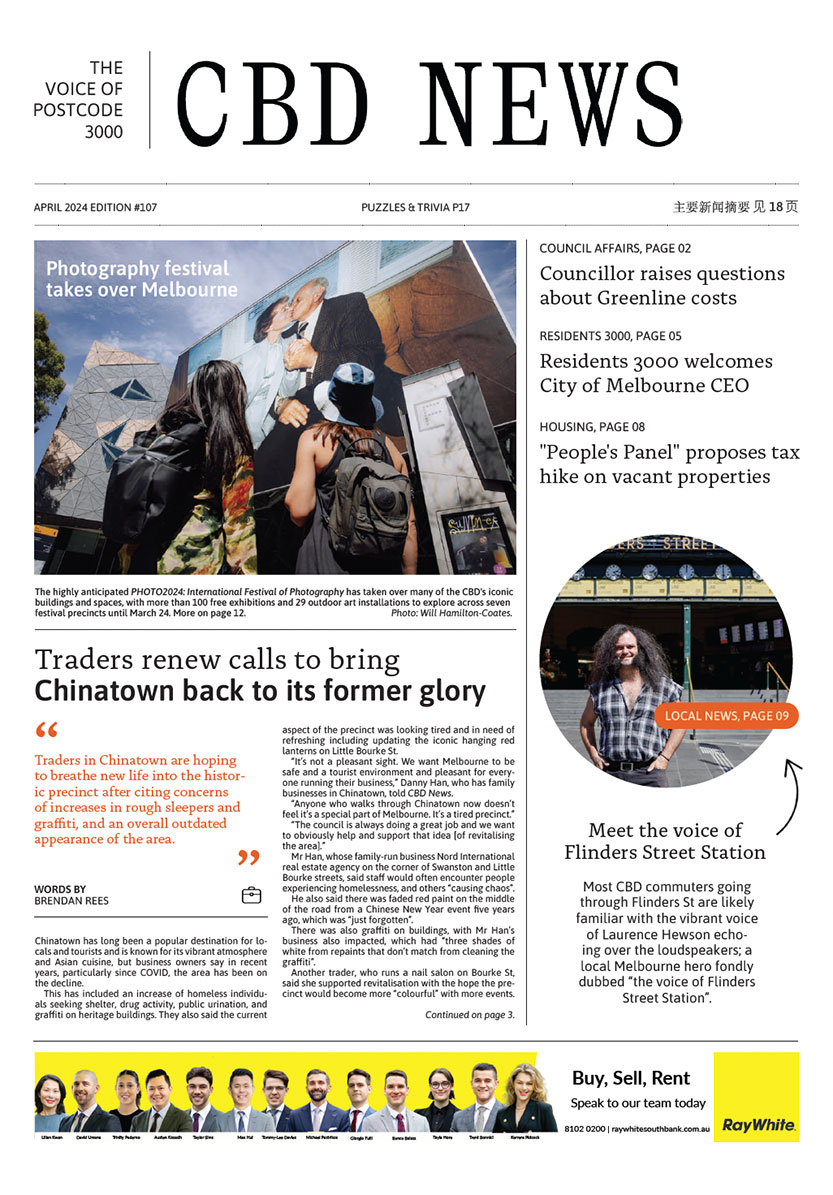Thinking small in waste management
By Rhonda Dredge
Down a small alley off Flinders Lane, tucked at the back of a car park, a modest environmental experiment is turning food scraps from nearby cafes into water and compost.
Niall Haran, the co-ordinator of the experiment, takes off in his mini electric dump truck to collect the consumables.
His is not a glamorous profession but some see waste warriors like Niall as heroes.
To save us from landfill overload, they are cleaning up the laneways without complaining, even if this means plunging their arms into vats of rotting food or clearing up spills left by nightly revelers.
It’s difficult for Niall to deny the heroics of the job when the crew at the Degraves St recycling depot calls their little truck the Batmobile and it’s designed to slip around corners and into grimy places.
The first job each day is to buff the laneways so they’re looking good after the big swill of an evening when up to 100,000 people converge on the area.
“This is the highest concentration of cafes in the CBD,” Niall said.
Many food scraps were ending up in general waste before the crew set out to blitz them. Instead of zapping perpetrators, however, the waste team is in the gutters and back kitchens of the laneways educating workers, offering them green bins, washing the bins, sorting out cardboard, plastics, dealing with polystyrene and generally firing up the population.
“There are gross times such as sticking your hand into oil or greasy curry,” Niall admitted. “You need a strong stomach.”
Some 120 traders are now involved in the project. “They can call around the clock if their coffee machine breaks down. The thrill of it is that we’re not just dealing with waste. Rather than being the bad guy we offer to troubleshoot.”
The day begins at 6 am but they don’t have to worry about the locals and their sleep because their electric vehicles are so quiet.
There’s quite a line-up of choice vehicles at the depot, including electric bikes, electric trolleys, an electric forklift plus the Batmobile which only needs to be charged every three days or so for its regular journey out to the Dynon Rd transfer station.
The aim of this project is to show how an operation taking up just 10 car spaces can keep an entire city block sustainable.
“This time last year we were handling eight tonnes of food waste a month. Now it's 22 tonnes.” The waste is fed into a large silver box known as an Orca, sprayed with an enzyme and mixed with little black beads. After adjusting the pH, the mixture eventually breaks down into water, which is returned to Werribee.
Coffee grounds amount to 40 per cent of the food waste and start-up companies are now turning them into fire logs for the barbecue and compost for growing mushrooms. The compost looks like a cross between soil and coffee grounds.
“The new hipster collects coffee grounds and gets them to bag it up,” Niall jokes.
He was recently featured on an episode of War on Waste as a solution to a problem. New ways of disposal have been forced on Citywide, the major contractor for the City of Melbourne, since China stopped accepting our waste.
Niall in his little den down Royston Place has his hands full. “Last year we took 442,000 tonnes away from landfill,” he said. The trick is to get into places these “nasty diesel trucks” can’t access. “We see this as the next generation of recycling. We want to take over the city.”
The depot currently deals with the quarter between Flinders, Collins, Swanston and Elizabeth streets.

Backloading across borders with Transcorp – navigating interstate moves with ease






 Download the Latest Edition
Download the Latest Edition